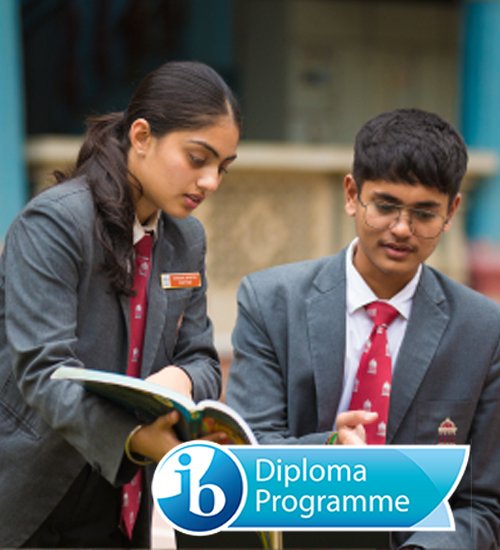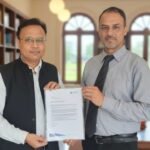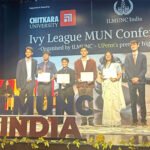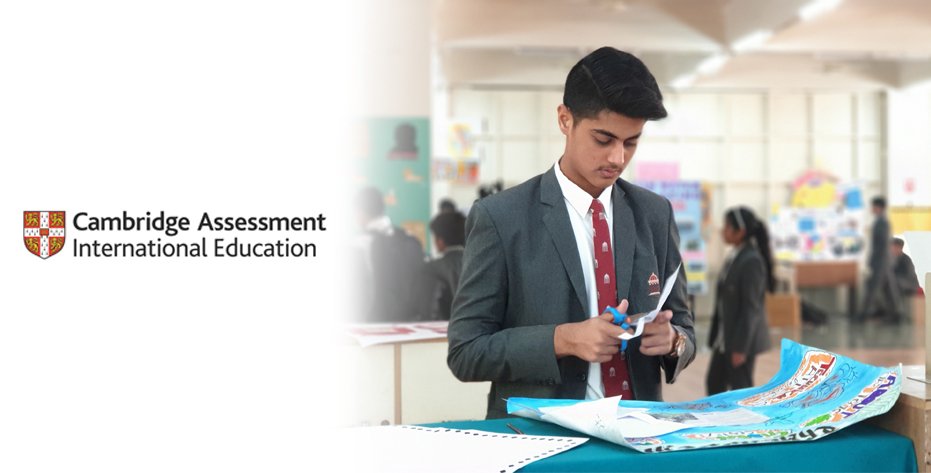
 Home
HomeAbout Us
Academics
Beyond Academics
Campus
Admission
News & Events
Resources
Education with global opportunities
for academic growth and development, and ensure that all students are provided the necessary life skills and competencies to function productively in an ever changing world
Core Values
At the heart of Gurukul lies a commitment to
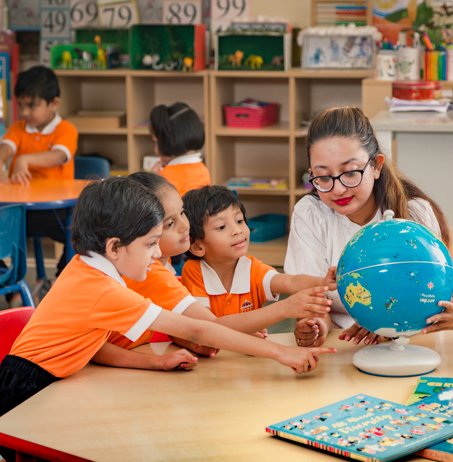
We pursue excellence by staying aligned with defined objectives and measurable outcomes.
We take ownership of our actions and strive for transparency and responsibility in everything we do.
We honor our promises with dedication and consistency to build a reliable and disciplined community.
We believe in addressing disagreements constructively, promoting harmony and understanding.
We foster an environment of mutual respect and trust to support collaborative growth.
We encourage a spirit of selflessness and giving back to the community as global citizens.
School’s Mission
Vishwashanti Gurukul’s mission is to provide resource based education with global opportunities for academic growth and development, and ensure that all students are provided the necessary life skills and competencies to function productively in an ever changing society while retaining Indian values and philosophy.
School’s Legacy & Achievements
Since 2006, VGIS has nurtured IB learners who excel globally—achieving top IB scores, gaining admissions to world-class universities, and embodying values that lead to success and purpose in life.

Overview of curriculum
We offer the full IB continuum
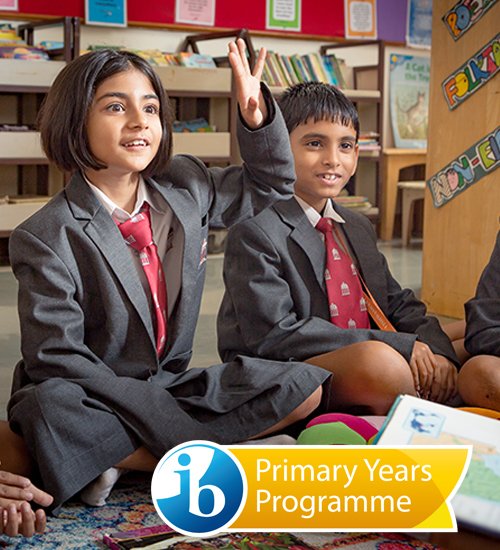
Primary Years Programme (PYP)
For ages 3–11
(Nursery-Grade 5)
Building foundational skills through inquiry and play.
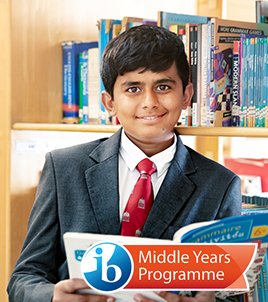
Middle Years Programme (MYP)
For ages 11–16
(Grade 6-10)
Encouraging critical thinking and interdisciplinary learning.
Diploma Programme (DP)
For ages 16–19
(Grade 11-12)
A rigorous academic framework preparing students for top global universities.
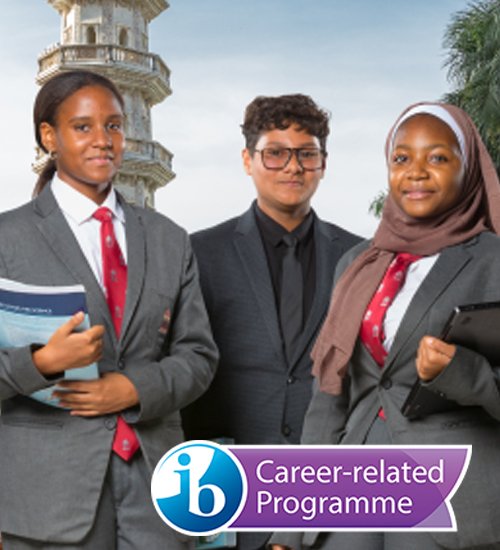
Career-related Programme (CP)
For ages 16–19
(Grade 11-12)
For ages 16–19 (Grade 11-12): Combining academic subjects with practical career-oriented learning.
Campus Life
Experience a vibrant campus where learning, well-being, and growth come together.
Academic Facilities
Modern classrooms, libraries, and labs designed to inspire excellence.
Boarding Facilities
Safe, comfortable hostels that feel like home, fostering independence and friendship.
Co-curricular Activities
Discover, engage, and grow beyond the classroom.
Sports & Athletics
Programs that build fitness, teamwork, and sportsmanship across various sports.
Sports & Athletics
Clubs & Societies
Clubs & Societies
Join clubs like debate, robotics, and environment to develop leadership and collaboration.
Community Service
Community Service
Projects that promote empathy and responsible global citizenship.
Competitions & Events
Competitions & Events
Regular participation in contests, MUN, cultural festivals, and sports meets.
Arts & Creativity
Opportunities in music, dance, drama, and visual arts to nurture creative talents.
Sports & Athletics
Join clubs like debate, robotics, and environment to develop leadership and collaboration.
Sports & Athletics
Competitions & Events
Regular participation in contests, MUN, cultural festivals, and sports meets.
Competitions & Events
Sports & Athletics
Join clubs like debate, robotics, and environment to develop leadership and collaboration.
Clubs & Societies
Competitions & Events
Regular participation in contests, MUN, cultural festivals, and sports meets.
Community Service
Competitions & Events
Regular participation in contests, MUN, cultural festivals, and sports meets.
Arts & Creativity
Explore a vibrant extracurricular life that complements
academic success at Vishwashanti Gurukul
Events
Experience the energy of Gurukul through vibrant campus events—academic fairs, cultural fests, international day, and more.

DP Students Lead the Way in Celebrating International White Cane Day by
We decided to support the Indian Association for the Blind (IAB), a respected organization working tirelessly to empower visually challenged individuals across India. We requested a humble contribution of ₹10 from members of our school community—and were overwhelmed by the positive response. Together, we raised ₹6,000, which was donated to IAB to help them continue their impactful work.

Celebrating the Journey: DP-2 Graduation and Farewell
The event began with heartfelt speeches from the valedictorians and outstanding students, each sharing stories that captured the spirit of the IB journey. Their words resonated with hope, gratitude, and a touch of bittersweet reflection. The principal, Mr. Venugopal, and vice principal, Mr. Arpit Sharma, also addressed the graduating cohort with powerful messages about embracing the future while holding on to the lessons of the past.

PYP-X 2024-25
How We Organise Ourselves: An inquiry into the interconnectedness of human-made systems and communities; the structure and function of organizations; societal decision-making; economic activities and their impact on humankind and the environment.
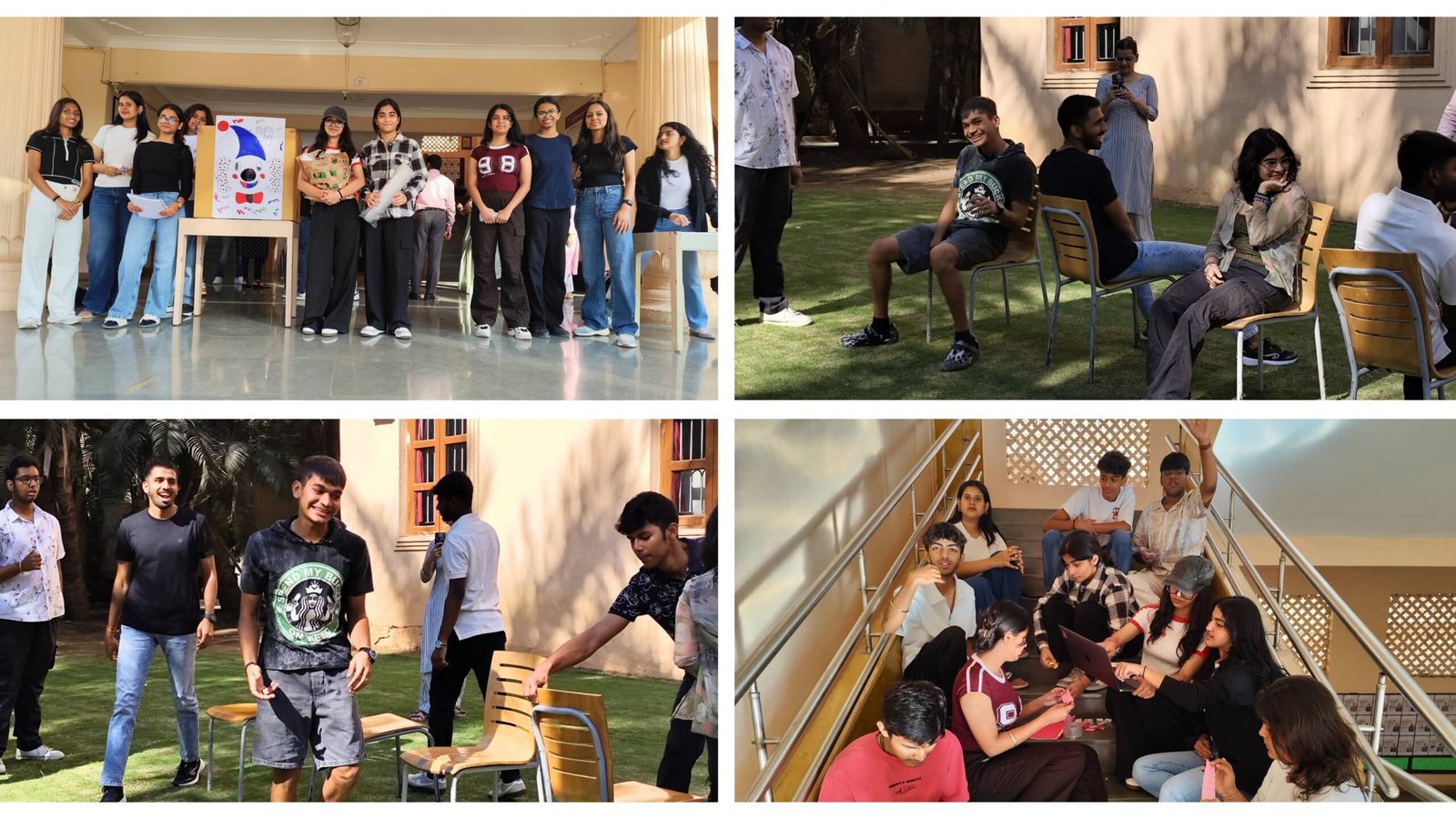
Mufti Day: A Fun-filled CAS Initiative with a Purpose
Mufti Day: A Fun-filled CAS Initiative with a Purpose Mufti Day was celebrated at Vishwashanti Gurukul on the 7th of March and was far more than just a day to dress casually; it was a meaningful CAS fundraiser designed to blend fun, service, and gratitude. As senior DP students, we took the lead in organizing […]
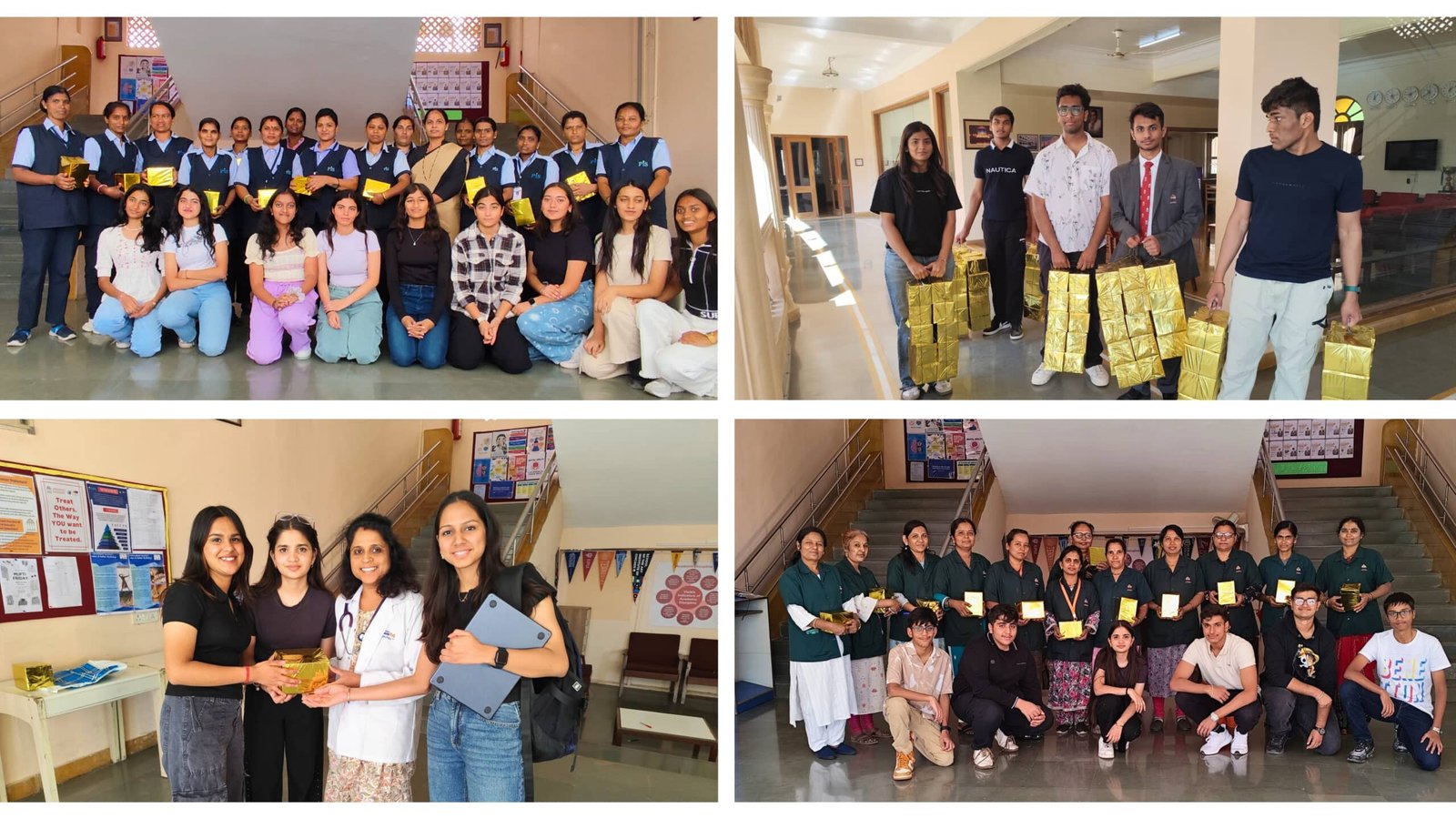
Women’s Day Celebration: A Heartfelt CAS Initiative
Women’s Day Celebration: A Heartfelt CAS Initiative On March 7th, Vishwashanti Gurukul witnessed a heartwarming celebration of Women’s Day, thoughtfully organized by our DP students as part of their CAS service. This special initiative was a meaningful tribute to the 105 hardworking women who are an integral part of our school’s support staff. With funds […]
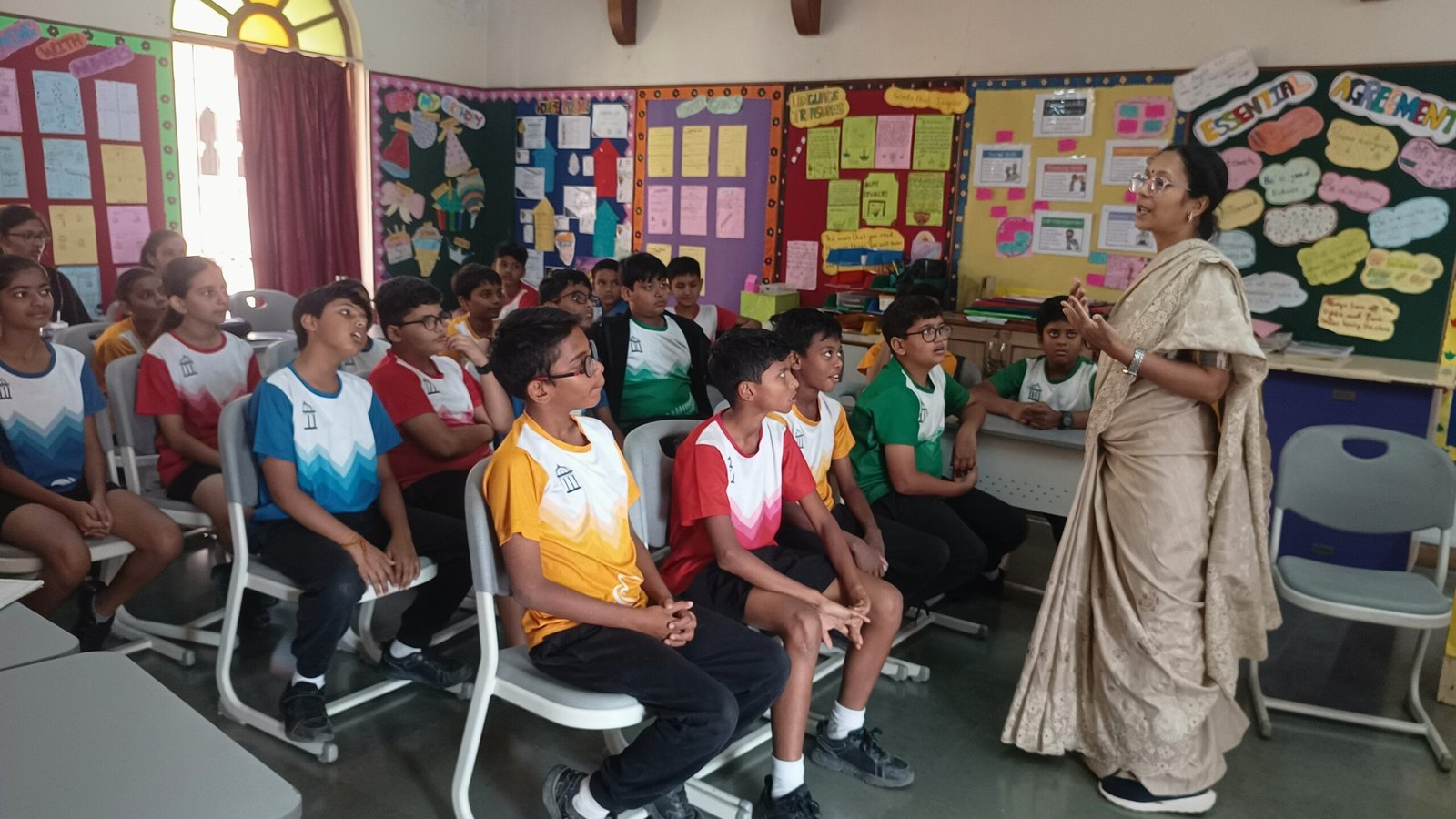
Guest Lecture on Sustainability: Learning in Collaboration with Parents and Teachers in PYP
Guest Lecture on Sustainability: Learning in Collaboration with Parents and Teachers in PYP As PYP 5 students at Vishwashanti Gurukul World School prepare for their upcoming exhibition, their excitement and dedication to inquiry-based learning continue to grow. Recently, they had the privilege of attending an insightful session on sustainability, led by Sharon Christa Ma’am, a […]
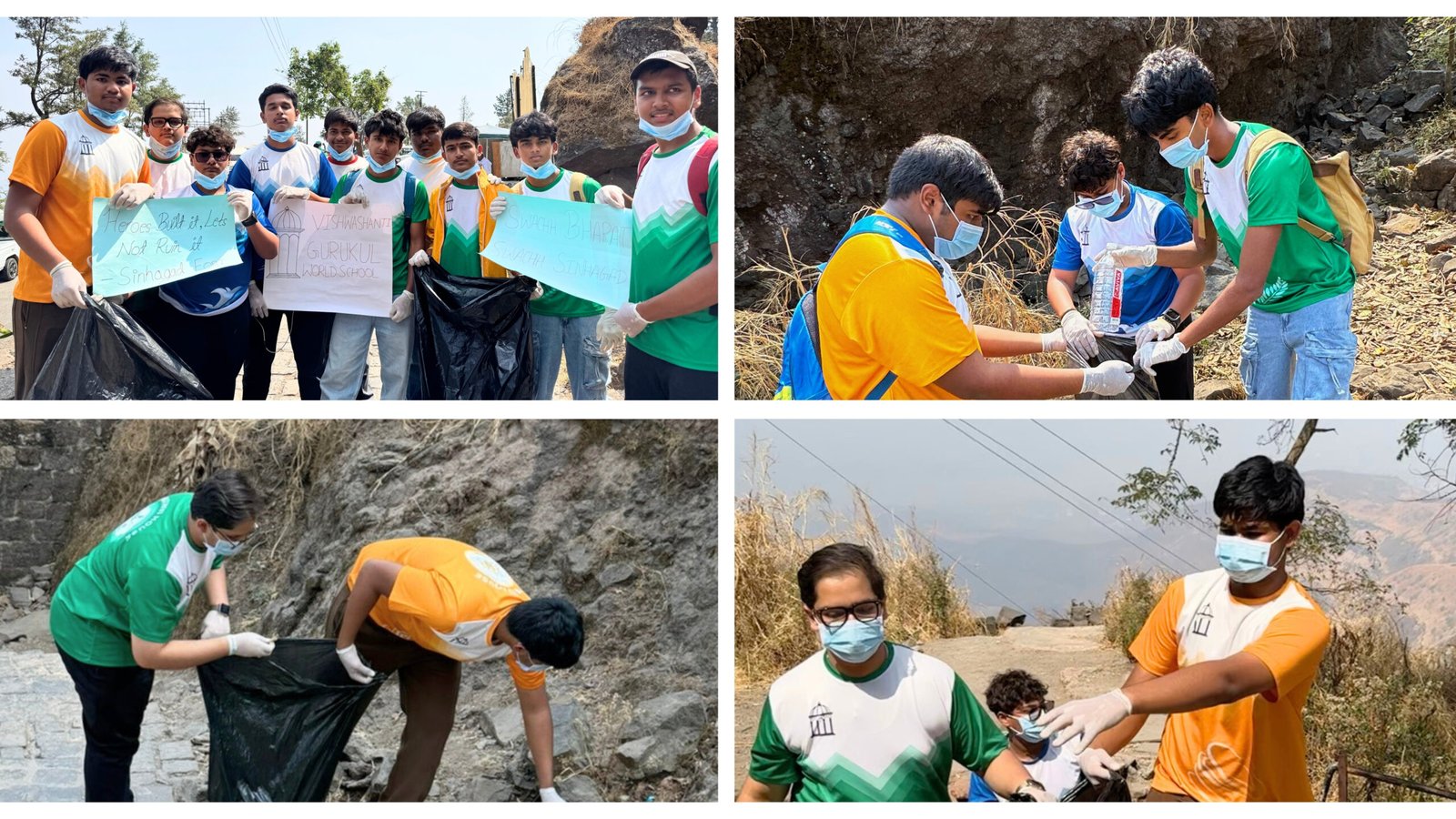
CAS Initiative: Sinhagad Fort Clean-Up
CAS Initiative: Sinhagad Fort Clean-Up By Siddhant Melant, DP 1 As part of our Creativity, Activity, Service (CAS) journey, a group of us—Siddharth, Ved, Aditya Aggarwal, Aditya Kumar, JC, Nikhil, Devdutt, Laksh, Agneya Verma, and I, Siddhant—embarked on what we initially thought would be a casual visit to Sinhagad Fort. However, the experience quickly turned […]
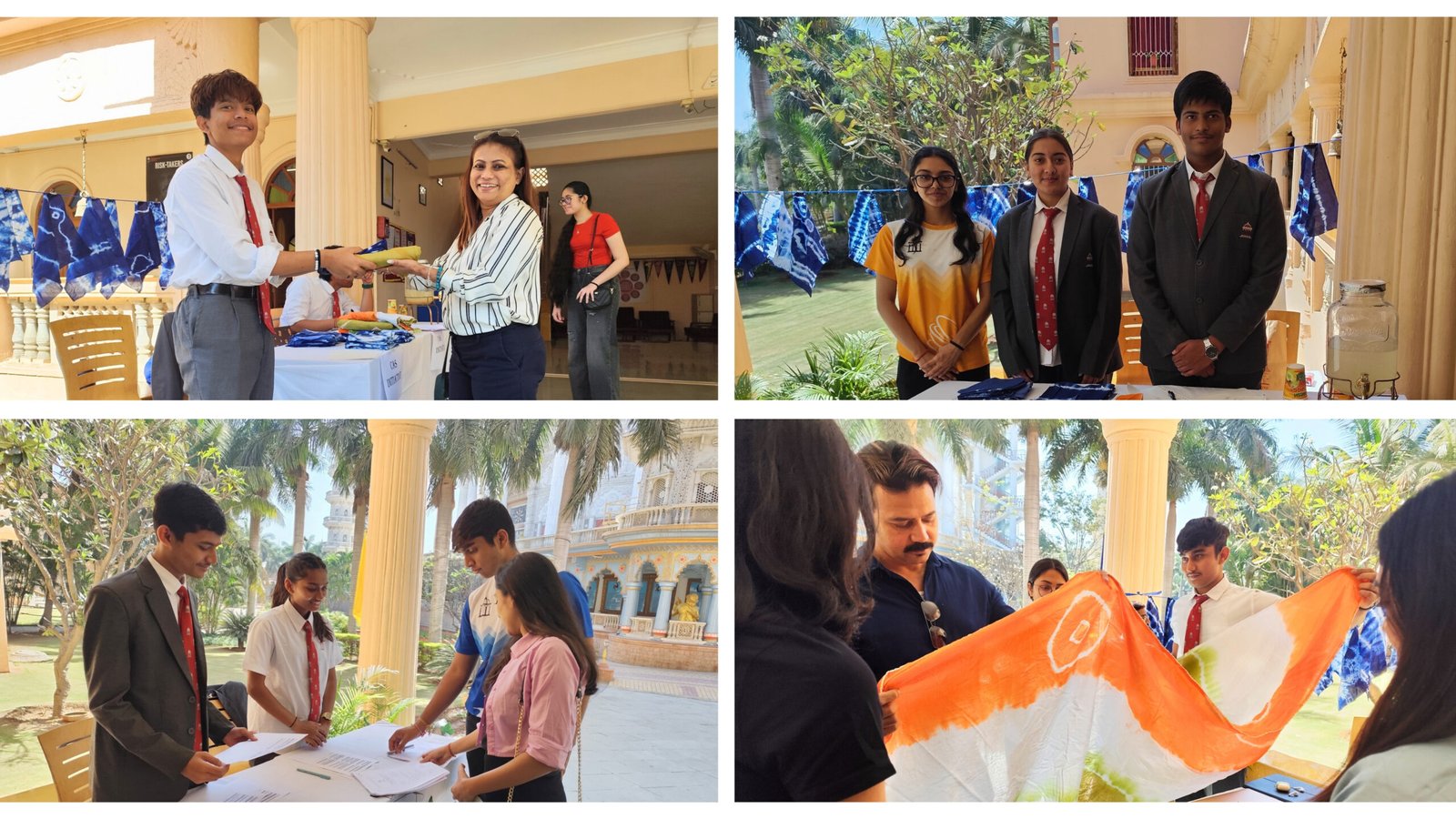
CAS Initiative: Parent-Teacher Meeting Stalls – A Blend of Creativity and Entrepreneurship
CAS Initiative: Parent-Teacher Meeting Stalls – A Blend of Creativity and Entrepreneurship By Harsifat Kaur, IBDP 1 Parent-Teacher Meetings (PTMs) have always been a significant event at Vishwashanti Gurukul, offering students, parents, and teachers a platform for meaningful discussions about academic progress. However, this time, the event took on a new dimension with a student-led […]

Exploring Tie and Dye Techniques
CAS Creativity Component: Exploring Tie and Dye Techniques at Vishwashanti Gurukul This fantastic and engaging task offered a perfect blend of creativity and cultural exploration. The session was guided by the ever-inspiring Ms. Nanda, one of Gurukul’s most cherished former Visual Arts teachers, whose passion for Indian craftsmanship brought this traditional art form to life […]

Makar Sankranti Celebration 2025 at Vishwashanti Gurukul
Makar Sankranti Celebration 2025 at Vishwashanti Gurukul: A Day of Festivities, Learning, and Joy On the bright and breezy morning of 14th January 2025, Vishwashanti Gurukul came alive with the vibrant hues of Makar Sankranti celebrations. This much-anticipated event brought together tradition, creativity, and community spirit, making it a memorable day for everyone on campus. […]

Living the Learner Profile in Early Years (EY) and Primary Years Programme (PYP)
At Vishwashanti Gurukul, young learners embody the IB Learner Profile through curiosity, communication, and collaboration. They engage in inquiry-based learning, developing essential skills to become principled, open-minded individuals committed to lifelong learning and positive community contributions.
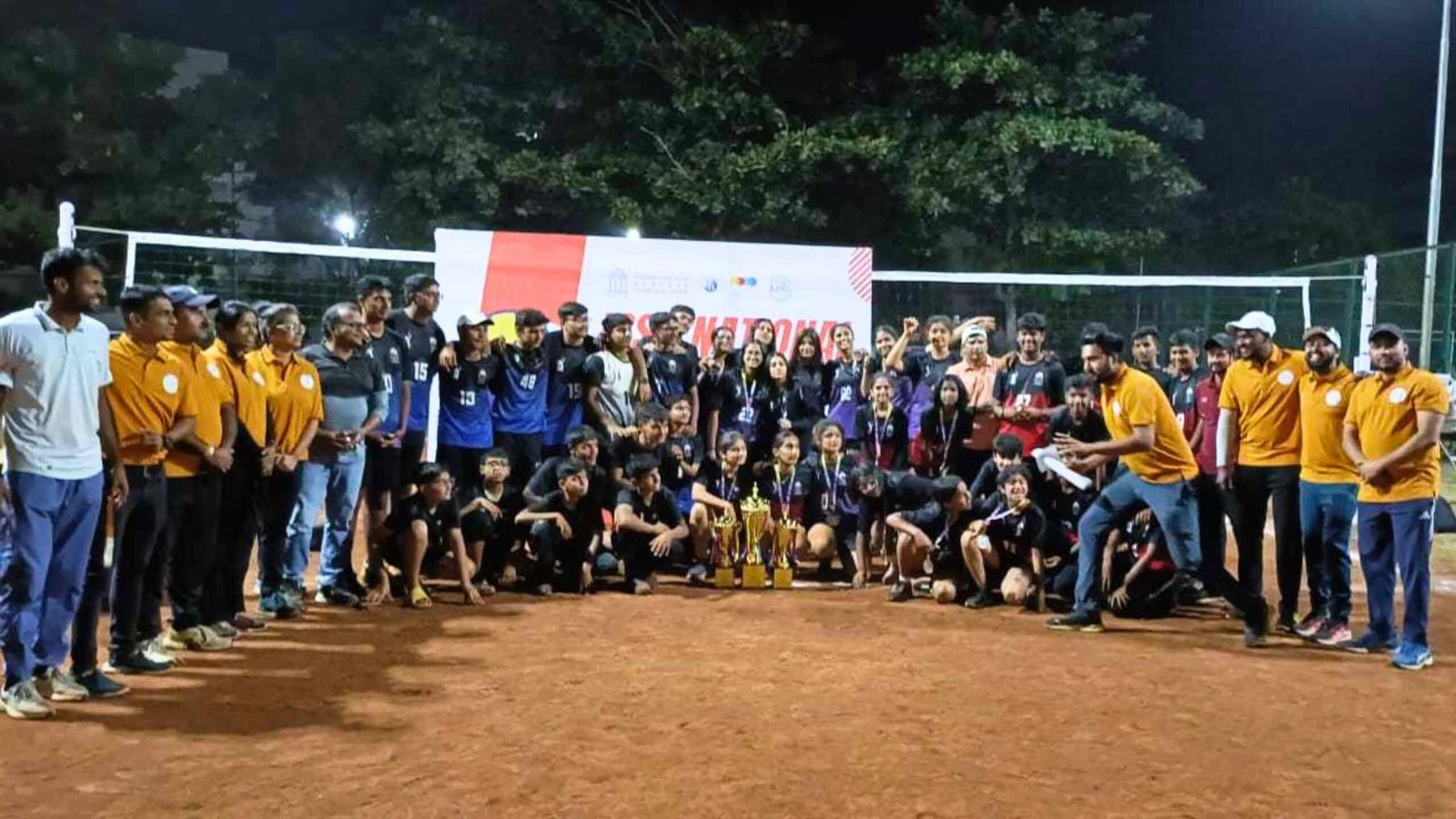
Under-19 Volleyball Team Shines at ISSO Nationals
Under-19 Volleyball Team Shines at ISSO Nationals The boys’ Under-19 team from Vishwashanti Gurukul World School recently participated in the ISSO National Volleyball Competition, hosted at our school, VGWS, and proudly clinched the gold medal in their category. The journey for the team began at last year’s ISSO National Games, where they gave it their […]
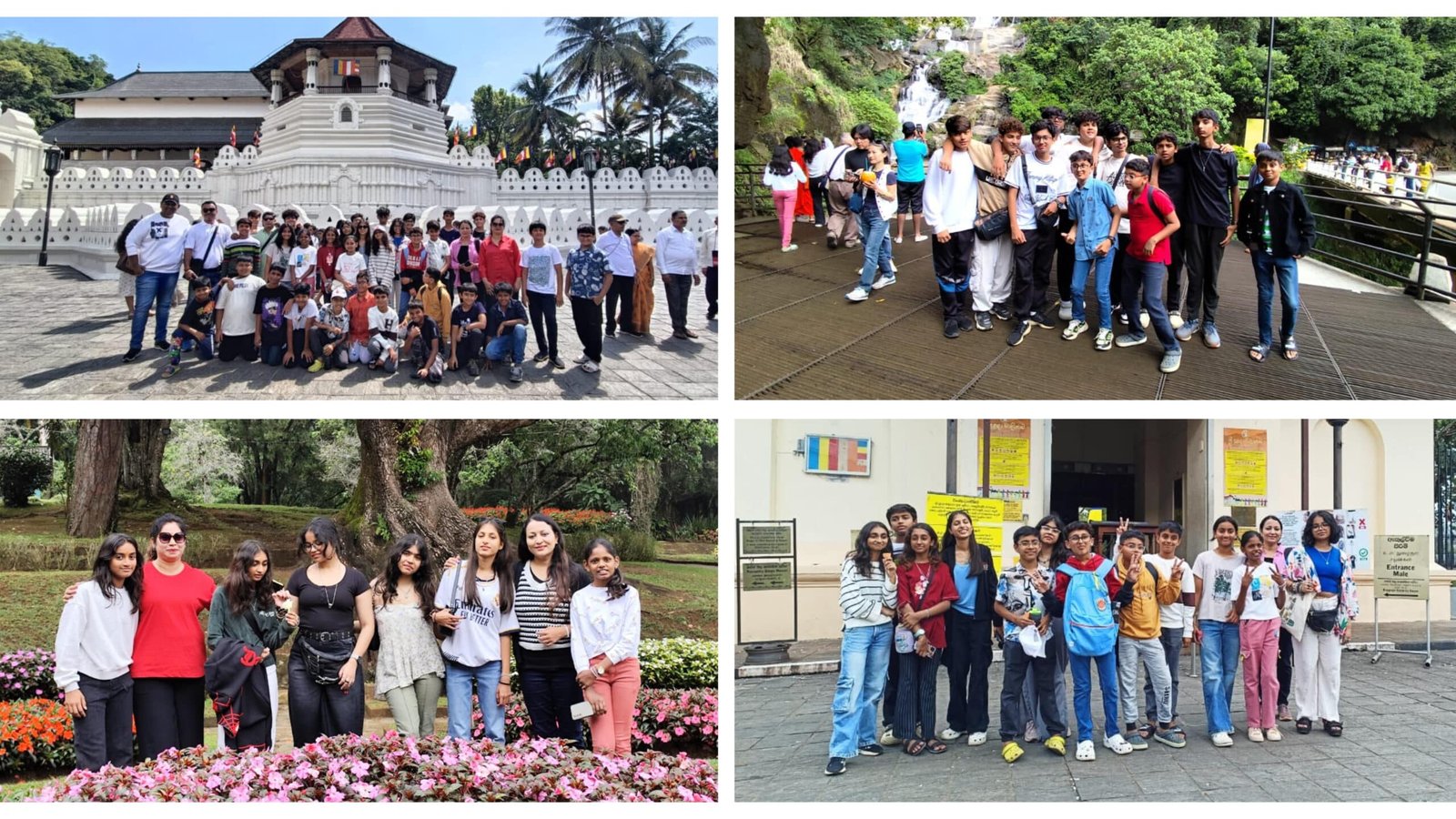
A Journey Through Sri Lanka: A Week of Beauty, Culture, and Adventure
A Journey Through Sri Lanka: A Week of Beauty, Culture, and Adventure Sri Lanka is a land of beauty and wonder, filled with ancient landmarks, breathtaking landscapes, and rich traditions. Each day on this seven-day journey revealed new facets of Sri Lanka. Our adventure began at the Pinnawala Elephant Orphanage, a heartwarming place dedicated to […]

CAS Initiative Shines at Global Educational University Fair
CAS Initiative Shines at Global Educational University Fair – Ketul Borda DP2 On September 21st, MIT Vishwashanti Gurukul hosted its highly anticipated Global Educational university Fair, welcoming universities from around the world to present their academic programs to our Diploma Program students. While the university fair provided invaluable opportunities for students to explore higher education […]

CAS Integration Through Nukkad Natak: “E-Waste Unplugged”
CAS Integration Through Nukkad Natak: “E-Waste Unplugged” Nukkad Natak is a powerful medium for raising awareness about critical social issues, and our DP students recent performed titled “E-Waste Unplugged” was no exception. This play, brought to life by our talented DP students, focused on the escalating problem of electronic waste (e-waste) and served as both […]
News & Updates
Stay informed with achievements, student highlights, community outreach and campus milestones.
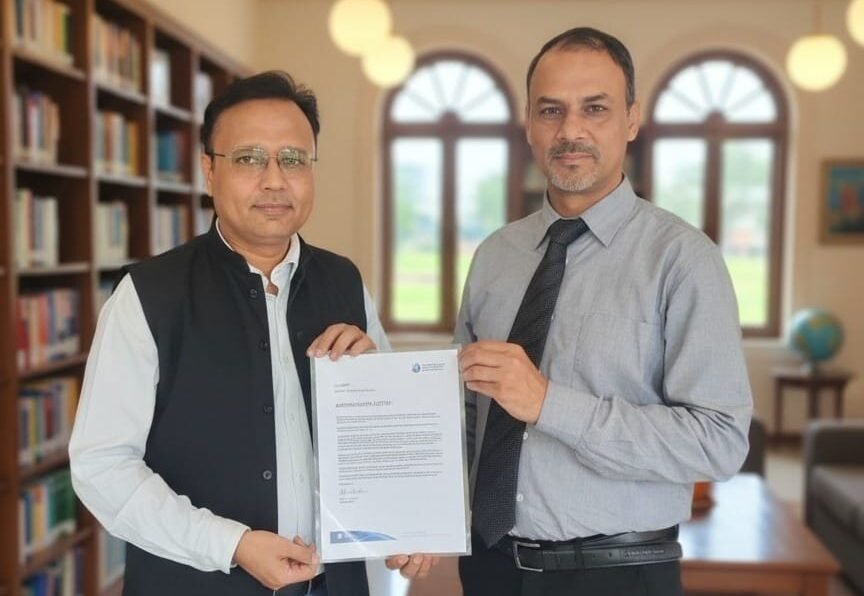
Vishwashanti Gurukul World School has been officially AUTHORIZED to offer the International Baccalaureate Career-related Programme (IBCP)!
Awards & Accreditations Celebrating Excellence & Recognition
At Vishwashanti Gurukul, our commitment to holistic education and academic excellence has earned us numerous prestigious awards and top rankings. These accolades reflect our dedication to nurturing global leaders of tomorrow.
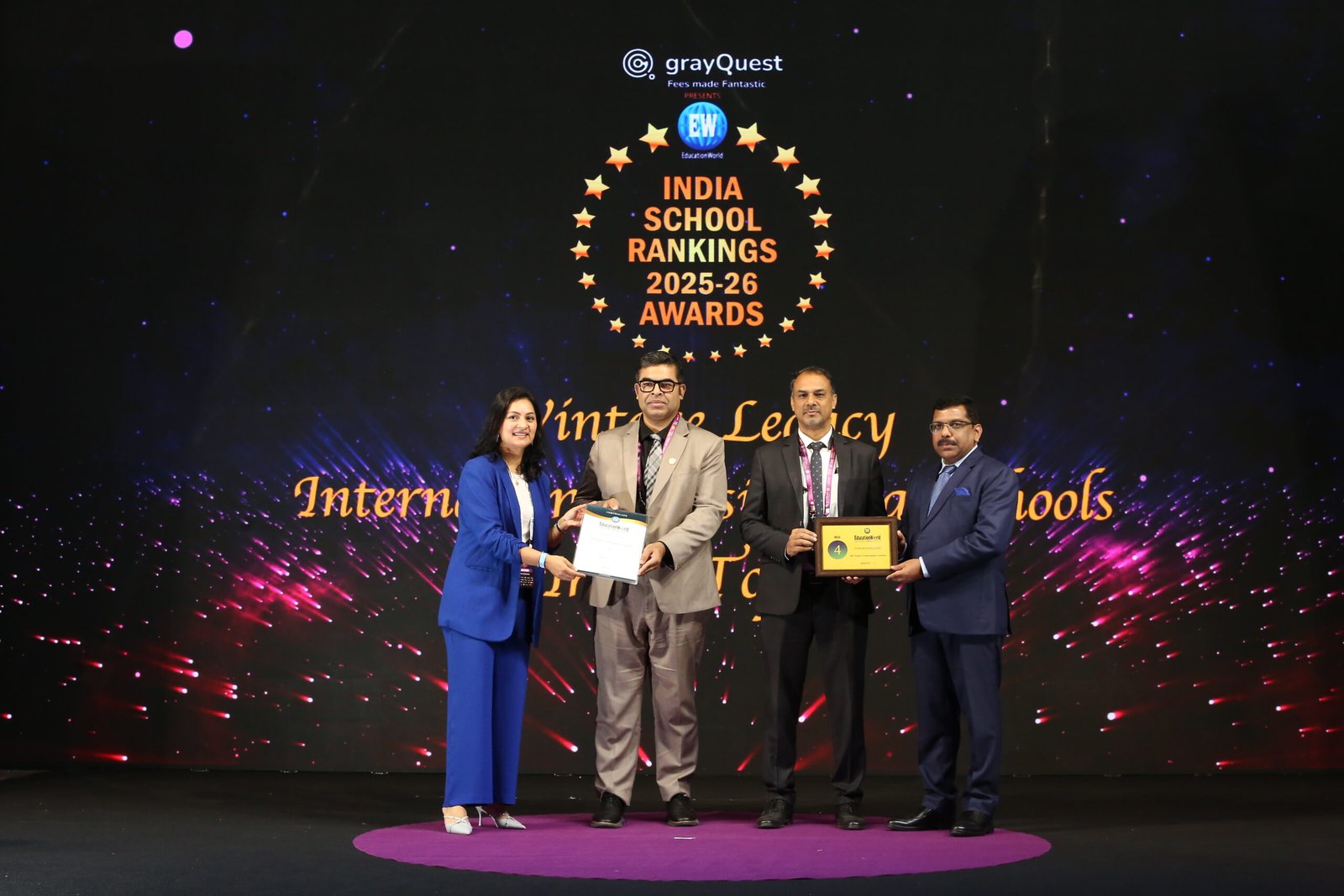

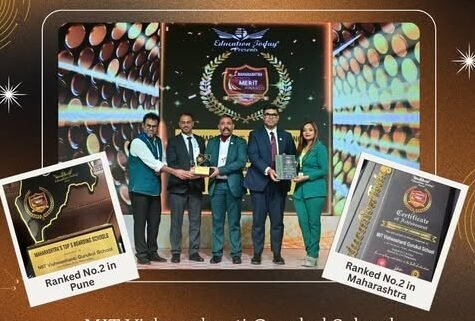


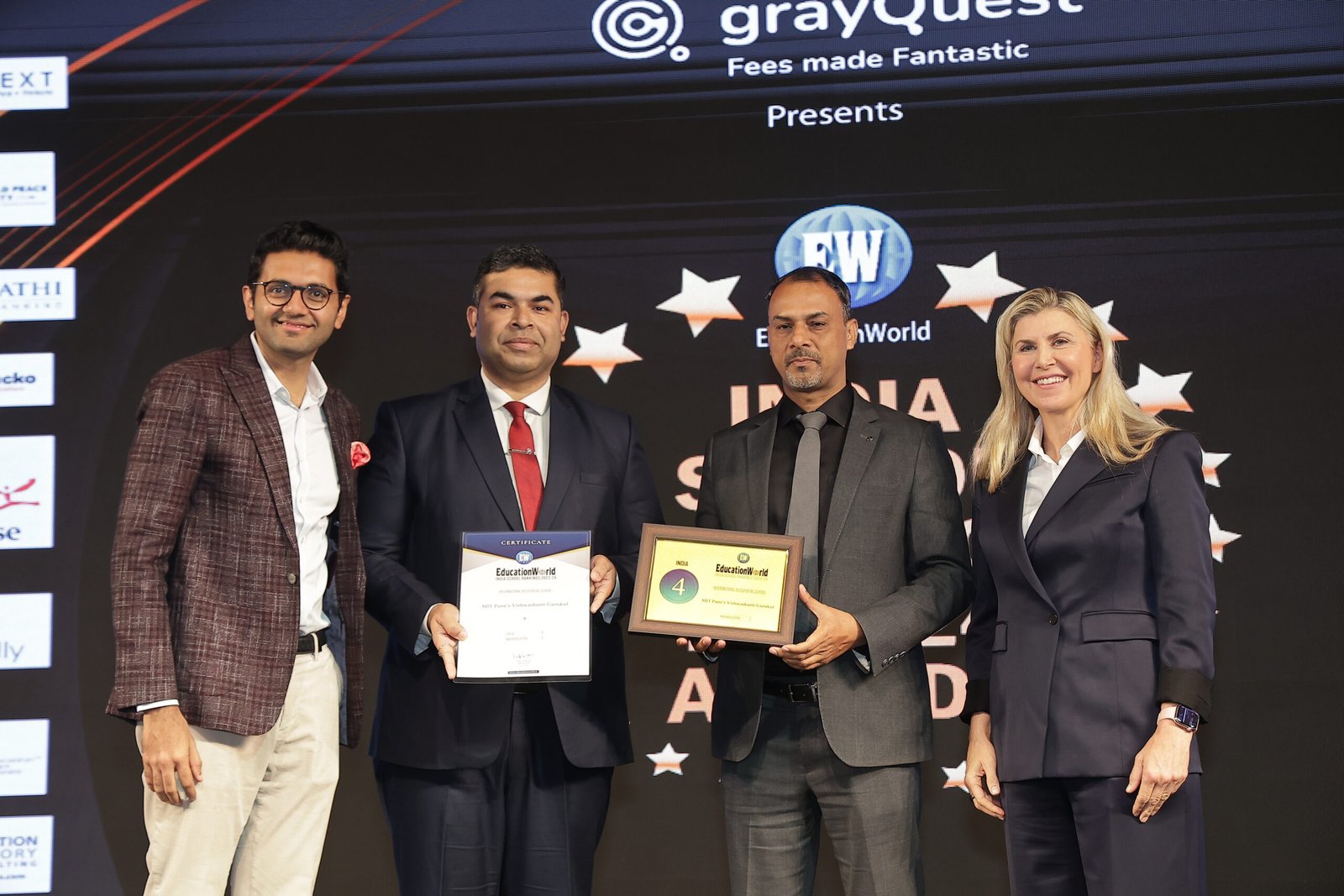
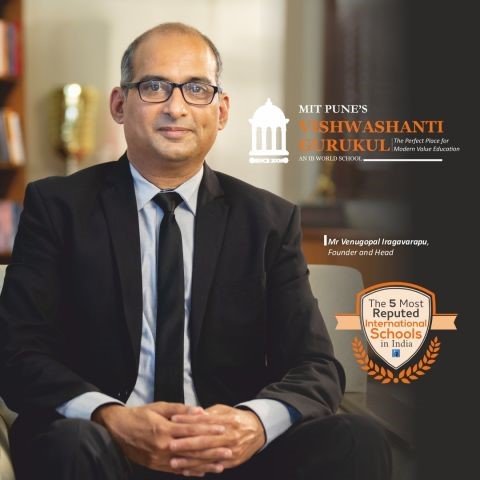


Testimonials
Don’t just take our word for it. Hear from our students, parents, and alumni
about their VGIS journey.
FAQs
General
1. Why a residential school?
Ans: Every visionary family , would like to send their children to the best of residential schools. To be a successful individual a person needs an opportunity to develop holistically. The secret of successful individuals is their tremendous self-confidence, decision making ability and leadership qualities. A child’s overall development, education, personality development, leadership qualities and rich values and culture will be the deciding factor for real success in life. Every child is bestowed with these latent potentialities which remain suppressed due to over-protection of parental care. Residential schools help children become independent and responsible individuals who have goo self-management skills. This is where quality residential schools offer good multi-platform for developing life skills and leadership traits.
2. What is the right age?
Ans: A child needs immense parental care till the age of five as emotional stability is nurtured in the child during this stage. The qualities and emotional balance can be instilled by the parents during this age only. The right age for children to join residential schools is six , wherein the child is enjoying childhood and forming habits . Residential School helps a child to develop into independent mature adults enabling them to adjust to all types of situations and environment later in life.
3. Who will take care of my child at the school?
Ans: This is where a residential school which is a home away from home and the school acts as a family unit where teachers replace parental love and the child is always under controlled conditions. The 24-hour watch by boarding coordinator , House Master or Mistress and house parents creates parental care. Constant monitoring and guidance wherever required helps the child to realize his/her potential and caliber. Residential school aims at nurturing an environment in which children can develop self-esteem, self-confidence and development of personality while acquiring knowledge.
4. Will my child become undisciplined?
Ans: The reason for a child being sent to a hostel is to instill in him/her discipline. Residential schools are best equipped to impart this mode of discipline as systems are in place 24 hours with qualified mentors/teachers. The 24X7 supervision by various faculties helps in channelizing the abundant energy in the child in positive developmental activities. The system ensures proper leadership and managerial qualities boosting their self-confidence and independence tremendously.
5. In what way is MIT Pune’s Vishwashanti Gurukul , an IB World School different from other schools?
Ans: The School not only concentrates on the gentle unfolding of the total personality of children, it also provides academic excellence coupled with training to induce the right attitudinal change to develop in them the sense of service to others. Vishwashanti Gurukul gives lot of emphasis to our culture and practice its noble principles like service, non-violence, respect to other religions, living in harmony with nature etc. It believes in Indian ethos and global reach . It is a dream school project , to inculcate positive learning habits to develop 21st century learners.
6. Where is the school located and how to reach?
Ans: The School is located in Maharashtra (State), Pune (City) on Pune-Solapur road. Pune is well connected to the rest of the country by air, rail, and road. Regular flights, trains and bus services connect this city to other cities. For further information, visit contact details.
7. Which educational bodies is MIT Pune’s Vishwashanti Gurukul affiliated to?
Ans: The school is affiliated to the IB (International Baccalaureate) and IGCSE (International General Certificate of Secondary Education) University of Cambridge International Examinations – United Kingdom. English is the medium of instruction. TAISI and SAIBSA , various other well-known university has association with school. The School is member of Boarding Schools’ Association ( UK ).
8. Which are the grades for which admission can be sought?
Ans: The admission will be available for Nursery (Day Scholar only) to Grade Prep I to IX and XI (Boarding option).
9. How can I register my ward’s name for admission?
Ans: Application forms can be either downloaded from the website or picked up from admission department of school. Filled in application forms with registration fees and photocopy of the report card of the previous grade to be submitted for the registration or you may also contact our admission representative through telephone or email admissions@www.www.mitgurukul.com contact +917897894804.
10. What are the eligibility criterions for admission into MIT Pune’s Vishwashanti Gurukul , an IB World School ?
Ans. Entrance test is mandatory (from Grade VI onward) so as to understand the child’s numeracy and language skills.
Academic
1. Is IB recognised in India?
Ans: Colleges and universities worldwide recognise the IBDP as a superior academic program that prepares students for success in university. The Association of Indian Universities (AIU) rates the IB Diploma at the same level as Class 12 CBSE, ICSE, NIOS or State Board exams. Many educational institutions have published their policies and entry criteria for IB students on their websites. For example, Delhi University colleges have specified their conditions for admitting IB students.
The IB Diploma is recognised by universities in over 110 countries and will allow entrance to the most competitive universities worldwide. The university admission authorities recognise the academic rigour of the IBDP and value the “extra” parts of the Diploma, such as TOK, CAS and the Extended Essay.
For more information, please visit www.ibo.org
Many European universities require the full Diploma as a qualification for entry.
- The IB Diploma is worth four and a half A Levels.
- Higher Level Courses are broadly equivalent to British A-Level courses.
- Higher Level courses are considered equivalent to American Advanced Placement (AP) courses.
Successful IB Diploma students may be offered credit (particularly for Higher Level courses and Theory of Knowledge) for overseas first-year university courses in Canadian and American universities.
2. Why should I select IB for my Child?
The IB Diploma has a great reputation for being a tough program, allowing students to attend great colleges in India and worldwide. With IB becoming more popular, it’s becoming the go-to choice for Indian students wanting to study overseas.
The IB curriculum is designed to give students the skills and confidence they need to succeed in higher education. This includes research skills, organizational skills, and the ability to engage in self-learning actively. The IB curriculum also helps students develop a positive attitude towards learning, which is essential for success in college and beyond.
Some universities offer scholarships to IB diploma holders because they know how valuable the IBDP is.
With university admissions becoming increasingly competitive, admission officers are looking for students who will succeed in the university and excel. The IBDP provides students with the skills and experience necessary to be successful in university and their future careers.
3. How is IB Programme different from CBSE & ICSE?
Ans. IBO is a non-profit organisation that does not have a board or provide a curriculum. It has four distinct programmes- Primary Years Programme, the Middle Years Programme and the Diploma Programme, and the Career-related Programme. It provides a flexible framework for schools to tailor their curriculum based on national educational benchmarks. The approach is inquiry-based, where students are taught to find their answers. Focus is more on the concepts than the content so that it’s relevant, significant and engaging.
The CBSE and ICSE are national educational boards of India that provide a specific curriculum for every subject. Examinations are conducted in a CBSE or an ICSE setup. However, in an IB school, students have open-ended assessments in the PYP, E- exams in the MYP and Diploma exams in grade 12 that are centralised from Cardiff, Geneva.
Primary Years Programme (PYP)
1. What is the IB PYP?
Ans. The IB PYP is an internationally recognized educational framework designed for students aged 3 to 11 years.
The PYP Early Years caters to children aged 3 to 6 years. It goes beyond traditional learning by emphasizing play, curiosity, and holistic development.
At Vishwashanti Gurukul World School, learners explore their environment through play, relationships, and interactions with peers, teachers, family, and the community. Teachers act as partners, nurturers, and guides, facilitating children’s interests and supporting them to achieve their long and short term goals.
Vishwashanti Gurukul World School’s Early Years creates a warm and dynamic environment for the tiny learners to explore, inquire, communicate, socialize, research and gain confidence to be independent at age appropriate tasks.
In PYP, the learners inquire, research and develop the art of questioning using their critical thinking skills and take a deep dive into the world of conceptual learning. Please read in our PYP section for more details.
2. How does the PYP Early Years benefit children?
Ans. The PYP Early Years framework is informed by research and designed to give children choices, encouraging ownership of their learning. It nurtures creativity, curiosity, and agency. Studies have shown that children in PYP Early Years programs develop literacy skills, perform well in school readiness, and exhibit higher learning rates compared to normative samples. For more details, please visit International education – International Baccalaureate® (ibo.org)
3. What does an Assessment look like in PYP?
Ans. Assessment is continuous and collaborative. Teachers and students work together to monitor, document, measure, report, and adjust learning. The students will not be limited to ‘Pen and Paper’, they will present their learning in many ways making their thinking visible. It focuses on gathering evidence of student learning to inform teaching and adapt to individual needs. The assessments focus on conceptual understanding and skill enhancement.
4. How does the PYP holistically support children’s growth?
Ans. The PYP early years program focuses on the total growth of the child—academically and holistically. It emphasizes on inquiry-based learning, and intercultural understanding and acknowledges that young learners are intelligent, resourceful, and creative individuals who learn at different rates. Play and exploring real life situations is a primary driver for inquiry, enabling children to construct their own learning and enhancing their communication, thinking, social, self-management and research skills.
5. How does Multilingualism fit into the PYP?
Ans: Multilingualism is celebrated in the PYP. Students explore languages beyond their mother tongue. Language learning includes not only communication but also cultural understanding. Schools encourage students to be proficient in multiple languages (Hindi, English, Spanish, German, French and Marathi) fostering global-mindedness
Middle Years Programme (MYP)
1. What is the MYP programme?
Ans. The Middle Years Programme (MYP) is an educational framework designed for students aged 11 to 16, providing a holistic and inquiry-based approach to learning. It is a part of the International Baccalaureate (IB) continuum.
2. What is the Personal Project in the MYP?
Ans. The Personal Project is a culminating project in MYP where students independently explore a passion, addressing global context and demonstrating skills acquired throughout the program. It is a mandatory component to get MYP certificate.
3. What is an e-Portfolio in MYP?
Ans. The E-Portfolio is a task or coursework students need to complete and submit to the IB. IB offers e-Portfolio in the subjects – Arts/Design/PHE. Students need to choose any one of these subjects and complete the tasks or coursework. E-portfolios are marked by teachers and externally moderated by the IB, so teachers must make judgments about their own students’ performance against the published criteria for the subject.
4. How are On-Screen Examinations conducted in MYP?
Ans. On-Screen Examinations in MYP assess students’ knowledge and skills through digital platforms, often covering various subjects within a specified time frame. IB conducts on screen examination for English (Language and lit., French/Spanish/German/Hindi (Language Acquisition), Mathematics, Integrated Humanities, Physics, Chemistry, Biology or Integrated Sciences and IDU (Interdisciplinary Unit)
5. What is meant by Interdisciplinary learning in MYP?
Ans: Interdisciplinary learning in MYP involves integrating knowledge and skills from multiple subjects to address complex issues, fostering a holistic understanding of real-world problems.
Diploma Programme (DP)
1. How is the IB DP different from other senior secondary programs?
Ans: The DP focuses on academic rigor, global awareness, and holistic development. It combines research, creativity, and service learning. Unlike many programs, it includes a core with TOK, EE, and CAS. It prepares students for university and beyond. Students are encouraged to think independently and critically.
2. What kind of student thrives in the DP?
Ans: Self-motivated, organized, and curious students do well. It’s ideal for those who enjoy challenges and diverse subjects. Open-mindedness and strong communication help. The DP suits learners who seek depth and breadth. With the right mindset, any student can succeed.
3. Can DP students still engage in sports, arts, and leadership roles?
Ans: Yes, and it’s encouraged through CAS activities. Students balance academics with co-curricular involvement. Many become student leaders, athletes, or artists. Time management is key but manageable with support. The DP values a well-rounded learner profile.
4. What kind of university opportunities does the DP open up?
Ans: Universities worldwide highly value the DP. It shows students are ready for rigorous academic life. DP students often earn college credits or placement. They stand out in applications for scholarships. It opens doors both locally and internationally.
5. How do students balance six subjects plus core requirements like TOK, EE, and CAS?
Ans: The program builds time-management and planning skills. Teachers and coordinators offer regular guidance. Tasks are spread out over two years. There’s support for balancing academic and personal life. The structure encourages steady, reflective work.
6. What support does the school offer throughout the DP journey?
Ans: A dedicated DP Coordinator oversees student progress. Teachers guide subject-specific learning and assessments. Wellness and career counselors provide emotional and future planning support. Workshops help with research and skills development. Parents are engaged through meetings and updates.
7. What subjects are offered at our school under the DP?
Ans: Subjects span across six major IB groups. Options include sciences, humanities, languages, arts, and math. Some may be available at both SL and HL. Offerings vary based on student interest and staffing. The school publishes a subject handbook annually.
8. Can students take DP courses without doing the full diploma?
Ans: Yes, students may choose individual subjects. They receive certificates instead of the full diploma. This option offers flexibility based on interests. It suits students who want challenge without the full load. Universities still recognize DP course certificates.
9. What is the Extended Essay (EE)?
Ans: It’s a 4,000-word independent research paper. Students choose their topic with teacher guidance. It builds university-level writing and inquiry skills. The EE fosters in-depth learning on a personal interest. It is assessed externally and contributes to the final score.
10. What is Theory of Knowledge (TOK)?
Ans: TOK explores how we know what we know. It connects learning across subjects and real-world issues. Students question sources, bias, and knowledge frameworks. It includes presentations and a final essay. TOK helps develop critical thinking and perspective.
11. What is CAS and why is it important?
Ans: CAS stands for Creativity, Activity, and Service. It promotes balance, reflection, and personal growth. Students pursue interests outside the classroom. It encourages empathy, leadership, and teamwork. CAS is a core requirement for the full diploma.
12. Is the IB DP stressful or too hard?
Ans: It is challenging, but support systems are in place. Students learn coping, planning, and problem-solving skills. Guidance from teachers helps manage workload. Reflection and breaks are part of the structure. Most students grow confident and resilient through the journey.
13. How is the DP assessed?
Ans: Assessment includes internal coursework and final exams. Each subject is scored out of 7. TOK and EE add up to 3 extra points. A total of 45 points is possible. Results are released in July each year.
14. Can a student switch from the DP to another stream mid-year?
Ans: Yes, but it depends on timing and school policy. Transfers are smoother early in the program. The school team will support with transition planning. Subject credit may vary based on the new stream. It’s best to consult the coordinator and counselor.
16. How does the UPO support DP students with university placements?
Ans: The UPO guides students through the entire application process. Support includes university selection, essay reviews, and deadlines. Students get help with recommendation letters and interview prep. Workshops and one-on-one counseling are provided throughout the year. The UPO ensures students make informed, confident choices.



